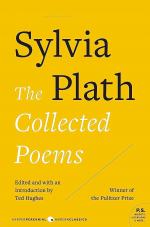|
This section contains 134 words (approx. 1 page at 400 words per page) |

|
Plath’s fairy tale poetry is largely a response to the values, inhibitions, and gender politics present in post-war, twentieth-century America. At this point, women were fighting to retain the place they’d carved out for themselves during World War II and tensions around women’s agency were running high. The poem admonishes the female reader against wanting to “know more than you should” (Line 3), and to maintain one’s place in the social order. Since these are the very stigmas Plath herself was fighting against, this poem serves to highlight these disparities in literature, pop culture, and American politics. Additionally, the poem uses a few motifs to enhance this sense of place such as the reference to “angel food cake,” a popular American showpiece dessert throughout the 1950s and ’60s.
|
This section contains 134 words (approx. 1 page at 400 words per page) |

|




